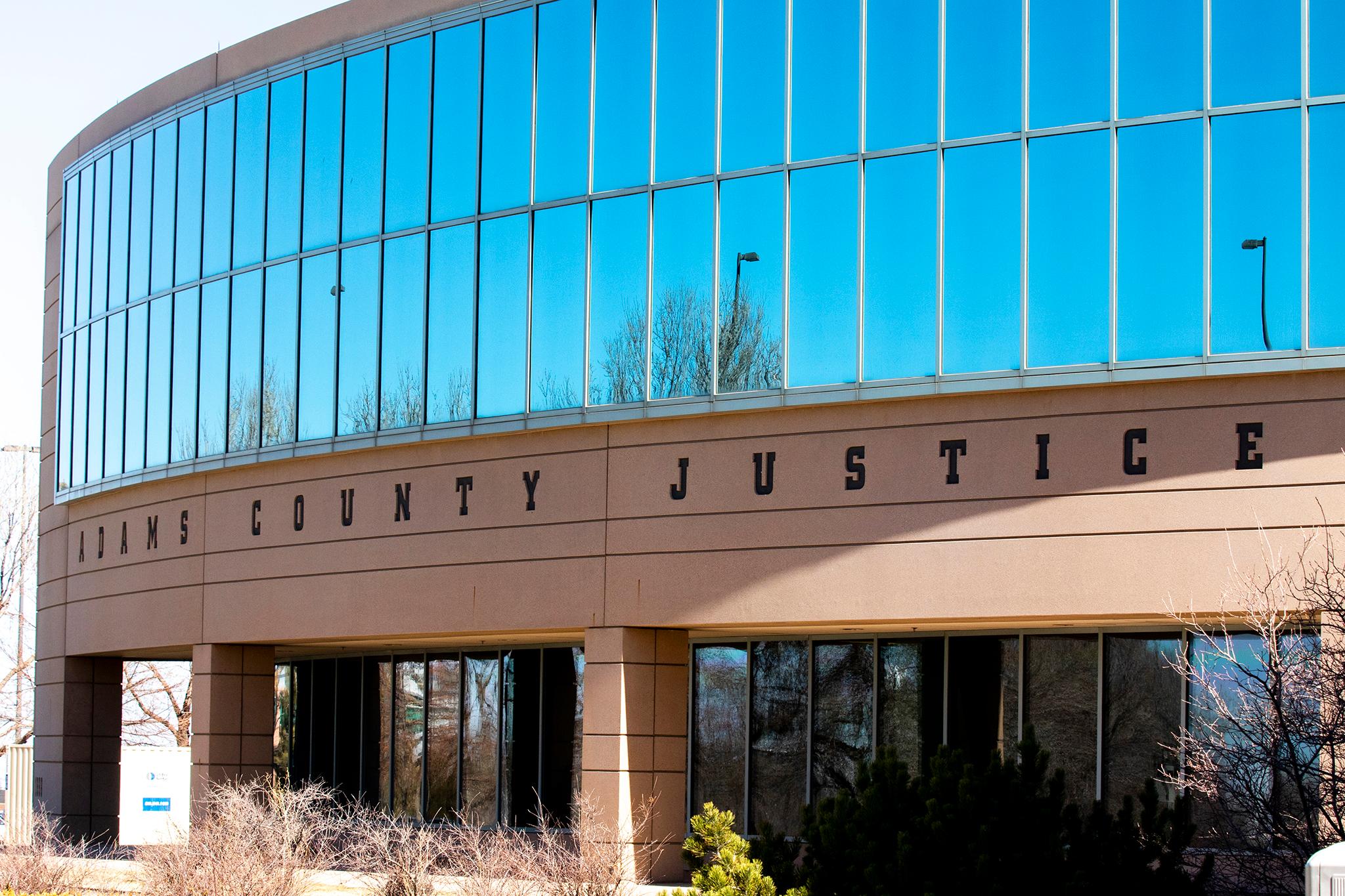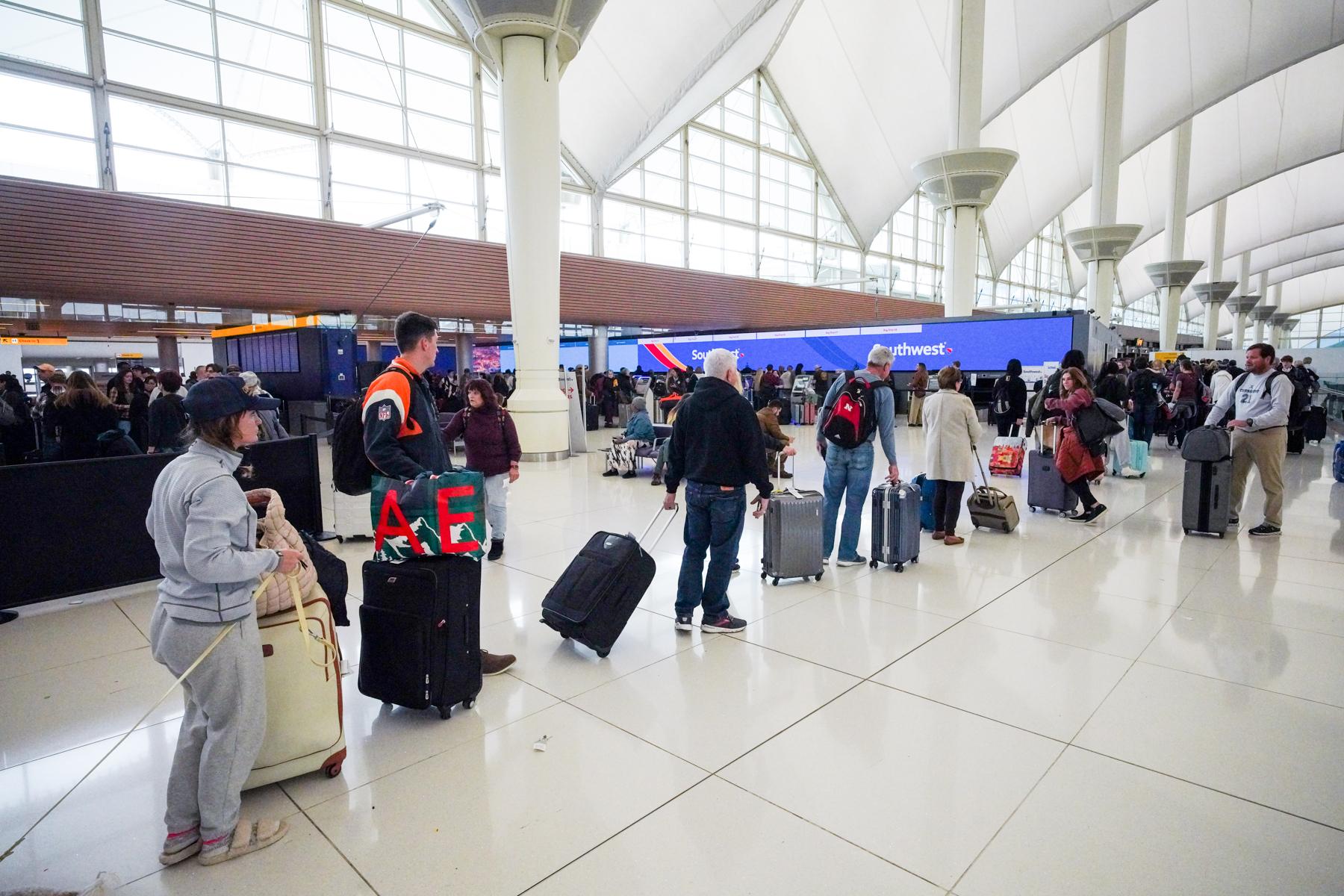
This story was updated at 2:19 p.m. on June 27, 2025
Federal immigration agents told at least two metro Denver counties that they will no longer allow criminal defendants in ICE detention to attend their local court hearings in person, further escalating a growing tension between the federal civil immigration efforts and the state’s criminal justice system.
Earlier this week, an email received by Denver and Adams County sheriffs, and perhaps others, said that U.S. Immigration and Customs Enforcement would still honor court appearances, but only if those appearances can be made over video links from the detention center.
“It affects our operation, it affects our DA's office, the judicial process,” said Adams County Sheriff Gene Claps, who added that he doesn’t know what precipitated ICE’s change in policy. “What it's really affecting is the victim's rights, and the victims that are waiting for due process.”
Jefferson, Douglas and Arapahoe county authorities said they had not received a similar message from ICE.
In a statement to CPR News, ICE said the agency tries to maintain good working relationships with local authorities, but has to take steps if they feel a local agency is preventing them from doing the work of deporting individuals not lawfully in the U.S.
"If I’m not confident that the sheriff will return an alien to us, then I cannot in good conscience release that individual,” said ICE Denver Field Office Director Robert Guadian.
Sheriffs say they’re squarely in the middle of the growing spat between the Trump administration and Colorado’s state laws, which limit what they can do on behalf of ICE agents inside their jails. It’s something Claps has tried to communicate to ICE.
Though one chief judge told CPR News that video courts are not uncommon in post-pandemic life, prosecutors and law enforcement chiefs feel differently.
They say dozens of disruptions per week in Colorado’s criminal justice system could result, followed by confusion, the issuance of failure to appear citations, and, perhaps most important, victims not getting the justice of seeing their accused perpetrator in court.
It also places the Trump administration, which portrays itself as a champion of law and order, in conflict with the criminal justice system where guilt and innocence are determined and order maintained.
Most people arrested in Colorado are released from jail to await trial, either by paying a bond or on their own recognizance. Either way, they promise to appear in court.
When ICE suspects the defendant is not lawfully present in the U.S., it asks sheriff’s offices to be notified before the defendant is released from jail, so ICE can meet and detain them at a civil immigration facility in Aurora. The jails do notify ICE, but can’t hold them indefinitely for ICE. That’s against Colorado law.
But previously, ICE would allow those defendants who they held in immigration detention to be taken to criminal court appearances while their immigration cases played out too. That’s now changed, at least in Adams County and Denver.
Claps said he spent an hour on the phone with ICE trying to reach a better conclusion than the order laid out in the email.
He reiterated that state law doesn’t allow him to hold people in the jail once they’re released on bond.
“We’re stuck in the middle of this feud between the federal government and the state, and we have to comply with the laws that we have in the state of Colorado,” Claps said.
A spokeswoman for the Denver Sheriff said the office received a similar notice.
Denver Sheriff Elias Diggins said, through an emailed statement, that officials were trying to work with ICE.
“We’re looking forward to a resolution of this matter,” he said.
On Tuesday, ICE agent Hung Thach sent an email to Adams County officials, reprinted below verbatim, regarding a preliminary hearing scheduled for next month for Manuel Mendoza Espinoza, who is accused of sexual assault.
“ICE ERO Denver is no longer honor Body Writ from Adams County and District Courts due to the Adams County Jail do not comply with immigration detainer or fail to transfer custody of aliens in a safe and orderly manner. We are still honor a Video Writ if you would like to do so.”
Mendoza Espinoza, 26, was arrested on May 18 by an officer with the Brighton Police Department. According to the arrest affidavit, witnesses say he attempted to sexually assault an unconscious, heavily-intoxicated female. The victim was transported to a hospital where her blood alcohol content was found to be .305, which is in the range of alcohol poisoning.
Mendoza Espinoza bonded out of jail, then failed to appear for a court hearing in the case on May 27. At some point he ended up in ICE custody.
“This is a concerning development as defendants must be physically present in court for the District Attorney’s Office to hold convicted offenders accountable and to conduct jury trials,” said a statement from the Adams and Broomfield District Attorney’s office. “We are monitoring the situation closely and urge the involved agencies to resolve any difference so we can minimize disruption to due process and public safety.”
ICE previously complied with a court order to physically bring Mendoza Espinoza to a hearing earlier this month. The court again ordered ICE to bring Mendoza Espinoza to his preliminary hearing, which is scheduled for next month.
“The presence of the Defendant is necessary at the hearing of this cause, but he is physically confined in the Immigration and Customs Enforcement - Denver,” reads the document, called by the original Latin a Writ of Habeas Corpus Ad Prosequendum. It essentially means bring the person for prosecution.
If Mendoza Espinoza appears virtually for his July preliminary hearing, it wouldn’t be unusual, said Kyle Seedorf, chief judge of the 17th Judicial District, which includes Adams and Broomfield counties.
“Obviously COVID and post-COVID we've seen more video writs than we previously had,” said Seedorf, in an interview. But “the case is much better served if the defendant is here in person, because they need to be able to confer with their attorney to really participate in the process.”
Seedorf added that Colorado judges can’t force ICE to comply with orders to present defendants in person.
“Anytime that a party is not able to have their day in court, through actions outside their control, there’s certainly a risk that it's impeding justice,” said Seedorf.
This new policy from ICE surprised longtime prosecutors. Stan Garnett, the former District Attorney of Boulder, said that he’d never heard of such a thing.
“It certainly will be a problem to continue to prosecute cases in the state court system if they refuse to honor writs ordering them to bring people in in person, because criminal cases require the in-person presence of the defendant for most important hearings,” said Garnett.
Garnett said he supported video hearings when he was DA, even before the pandemic, but it’s not always appropriate. Outside of a public health emergency like COVID, ICE’s refusal could also run headlong into a defendant’s Sixth Amendment right to public trials and the ability to confront witnesses.
“There is an in-person component to certain things in criminal proceedings,” said Garnett. “Trial, major hearings, arraignment, motions, that kind of thing, where a defendant has a right to be present in person or it's not a valid proceeding.”









